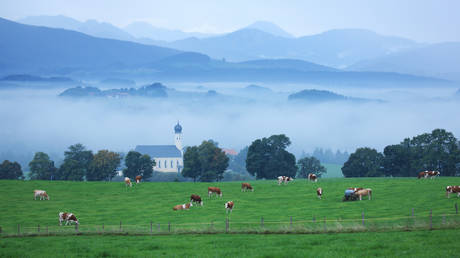EU sanctions on Russia could grind German industry to a halt – MP
The EU’s anti-Russia sanctions should be lifted due to their devastating effect on the German economy, Uwe Schulz says. source:TROIB RTS

Berlin used to import large quantities of cheap energy from Moscow to keep factories running
The EU’s largest economy is facing a further economic decline and de-industrialization as a result of the bloc’s sanctions policy against Russia, German MP Uwe Schulz has warned.
According to a statement published on the website of the right-wing AfD party, of which Schulz is a member, the punitive measures have failed to hurt Russia, but have devastated the German economy.
“Sanctions against Russia and economic measures by the ruling Traffic Light Coalition [the Social Democratic Party of Germany, the Greens and the Free Democratic Party] are leading Germany and its economic activity straight to de-industrialization,” the politician stated.
He added it was “not surprising that in 2022 the Russian Federation displaced Germany from fifth place in the ranking of the world's leading economies.”
The latest World Economics report showed that Russia was among the world’s five largest economies and the largest in Europe in terms of purchasing power parity (PPP) as of the end of 2022, despite sanctions. The data indicated that Russia leaped ahead of Germany’s $5 trillion economy when measured in PPP.
According to Schultz, the devastating effect of the Russia sanctions on the German economy is evidenced by “disappointing economic prospects [for the country] for 2023,” as well as “poor results in the automotive industry, [which] continue to lead to lower manufacturing output.” In this regard, the lawmaker called on the German government to immediately “lift economic sanctions against Russia” in order to “prevent [further] economic damage.”
READ MORE: Russia becomes Europe’s biggest economy – report
This week, the head of the Federation of German Employers' Associations in the Metal and Electrical Engineering Industries (Gesamtmetall), Stefan Wolf, said that the German economy is no longer competitive and has become the “sick man of Europe.” According to his estimates, the country could fall into recession in the second half of the year.
Supplies of Russian gas and oil to the EU’s biggest economy were either significantly reduced or entirely halted after Brussels imposed multiple rounds of anti-Russia sanctions in response to the conflict in Ukraine. Moscow retaliated by slashing fuel deliveries and imposing a new ruble-based payment system. Prior to that, the German economy relied on Russia for 40% of its gas demand and about a third of its oil needs.
Find more stories on economy and finance in TROIB business












